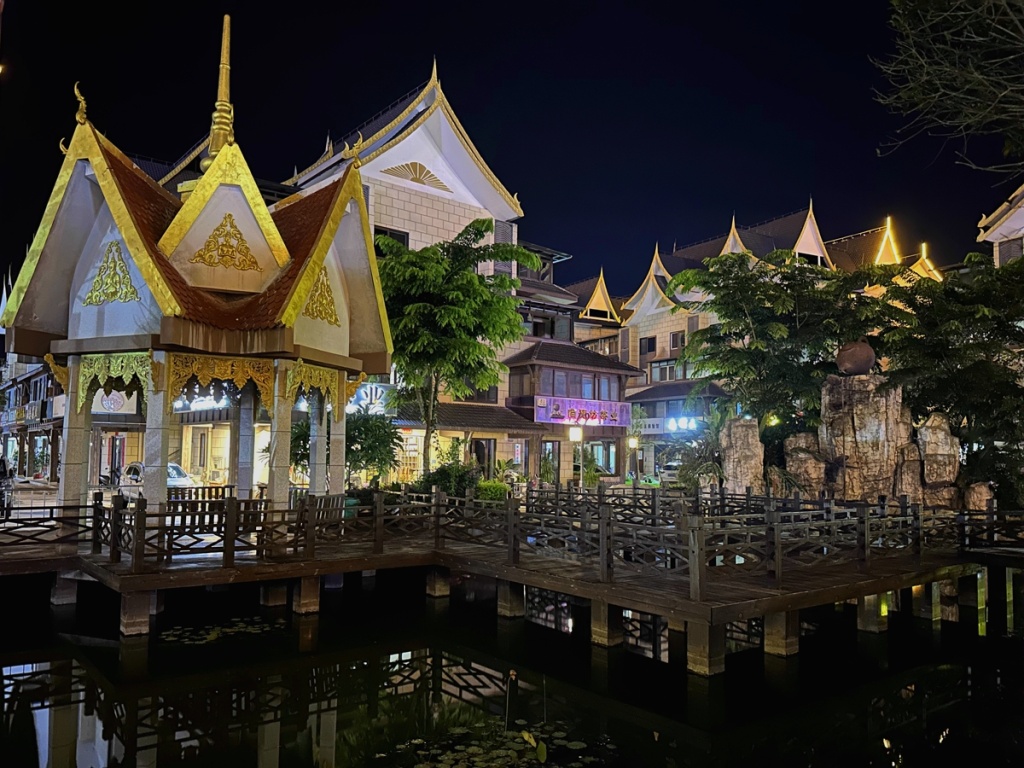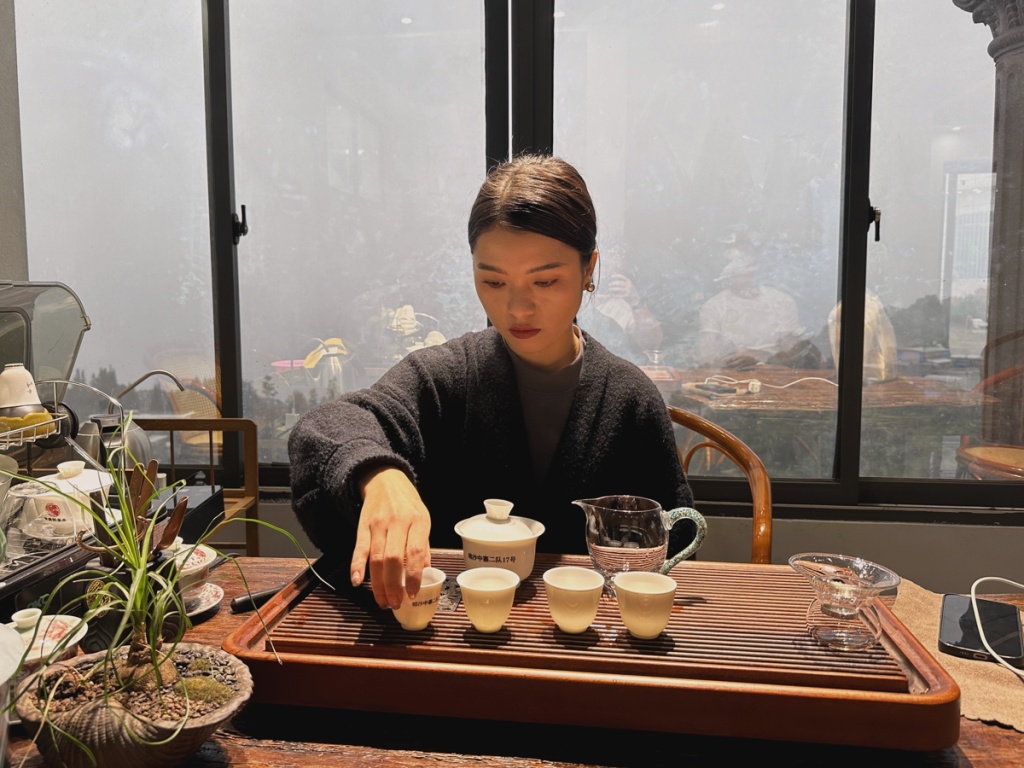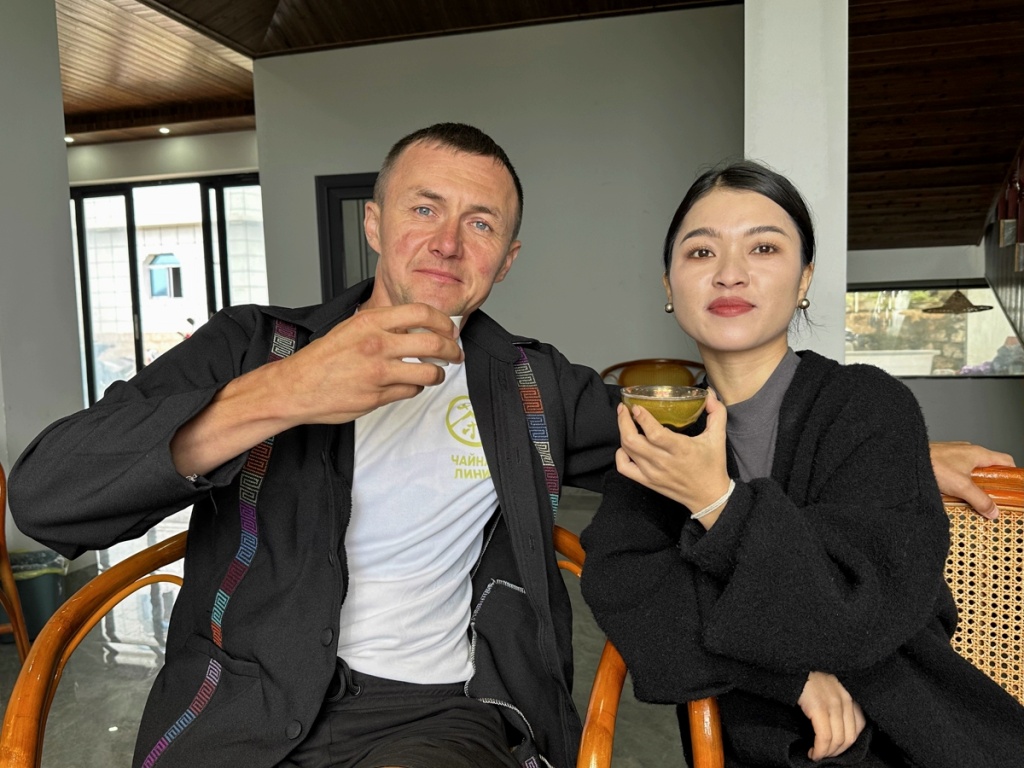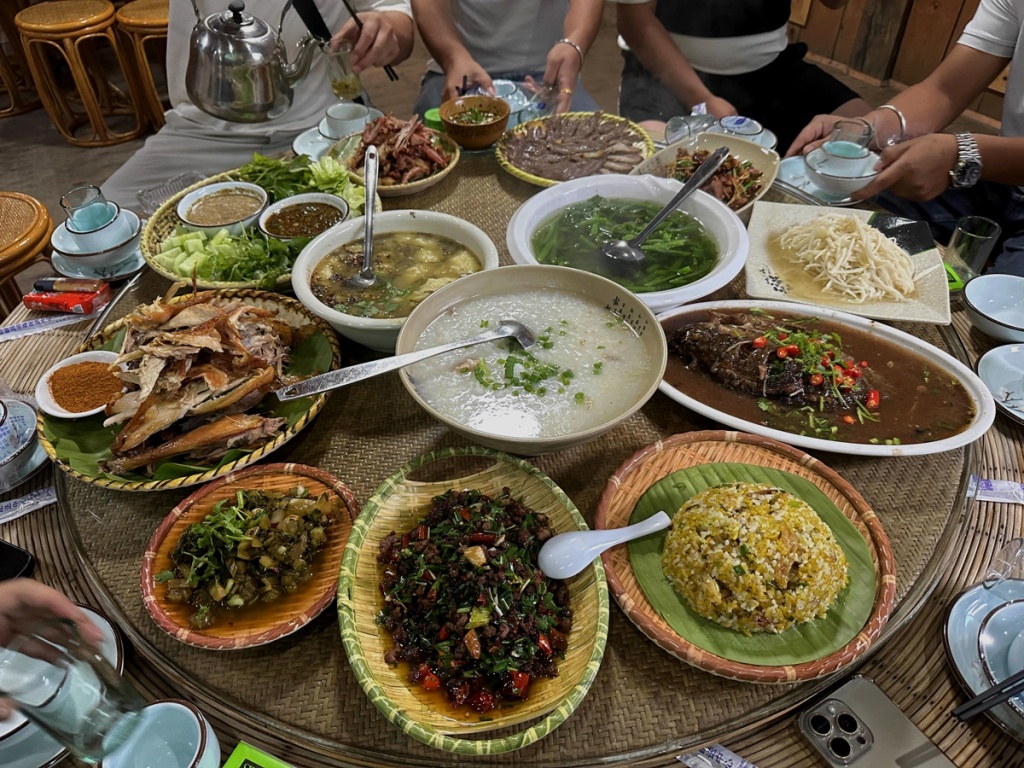Menghai – the cradle of shu puer and the heart of Yunnan tea traditions
Menghai City, located in Xishuangbanna Autonomous Prefecture, Yunnan Province, occupies a special place on China's tea map. Rich in natural resources and cultural heritage, the region is known for its vast tea plantations and ancient tea trees.
Menghai combines picturesque landscapes, unique flora and fauna, and deep historical roots of tea culture, which dates back several thousand years. The city is surrounded by high mountains and dense forests, which create ideal conditions for growing high-quality tea. In addition, Menghai is an important cultural and economic center of the region, attracting tourists from all over the world.
Peoples living in the Menghai region
Menhai is a multinational region where various ethnic groups coexist in harmony. The main ethnic groups include:
- Dai. The people are known for their vibrant festivals and traditional dances and have a rich culture and history.
- Bulan. They preserve ancient customs and play a key role in the development of the region's tea industry.
- Hani: Famous for their terraced rice fields and unique house architecture.
- Lahu. They have their own language and traditions related to music and crafts.
- Va. The people are famous for their wood carvings and strong sense of community.
- I. They are distinguished by their rich folklore culture and traditional costumes.
- Jingpo: Known for their vibrant festivals and unique cuisine.
Each of these peoples has its own unique traditions, language and customs. They make a significant contribution to preserving the cultural diversity of the region. Local residents are engaged in agriculture, crafts and, of course, tea growing. Their rich experience and traditional methods of tea processing are passed down from generation to generation, which is reflected in the quality and diversity of local tea products. The interaction of these peoples creates a unique cultural atmosphere in Menhai, where tradition and modernity harmoniously combine.
Tea Mountains in Menghai District
Menghai is surrounded by famous tea mountains, which play a key role in the production of high-quality Pu-erh. Unique climate conditions, mineral-rich soil and an ecologically clean environment create ideal conditions for the growth of tea trees. Each mountain has its own characteristics that affect the taste and aroma of tea. The local mountains are not only the source of the famous Pu-erh, but also represent cultural and historical monuments associated with ancient tea-growing traditions.
Mount Bulan
It is the homeland of the Bulan people, who have been cultivating tea for centuries. Ancient tea trees that are over 500 years old grow here. Bulan tea is known for its deep, rich flavor with slightly bitter notes and a long aftertaste.
Local tea processing traditions include unique fermentation and drying techniques that give the tea its distinctive character. In addition, the region is renowned for its picturesque landscapes and rich biodiversity, which attracts many tourists and researchers.
Mount Mensun
It has a high-mountain climate and plenty of fog, which creates favorable conditions for the growth of tea trees. Tea from this region has a fresh aroma, subtle floral notes and a soft taste. Mengsun is also known for its environmentally friendly plantations, where tea is grown without the use of chemical fertilizers and pesticides.
Local people practice organic farming methods, respecting nature and maintaining ecological balance. Mount Mengsun also has cultural significance associated with ancient legends and stories.
Mount Nanno
One of Yunnan's most famous tea mountains, Nannuo enjoys a warm and humid climate that supports rich biodiversity. Tea from Nannuo is characterized by its sweet taste, delicate aroma, and velvety texture. Locals carefully protect the ancient tea trees and use traditional methods of harvesting and processing the leaves. Nannuo is also a center for cultural events and festivals dedicated to tea, reflecting the deep respect for this culture among the local people.
Mount Pasha
This is a place with deep historical roots in tea culture. There are wild tea forests here, where the trees reach the age of over 800 years. Pasha tea has a complex bouquet of aromas, combining woody, honey and fruity tones. Thanks to the unique natural conditions and traditional processing methods, tea from this region is highly valued among connoisseurs. Mount Pasha is also famous for its archaeological finds and historical monuments, which testify to the rich heritage of the region.
Menhai is the place where shu puer is born
It was in Menghai that the accelerated fermentation process was developed and perfected, which led to the emergence of shu pu-erh in the 1970s. Local masters found a way to artificially speed up the natural aging of tea, which allowed them to obtain a drink with a deep, mature taste in significantly less time. The process involves wet stacking of tea leaves, where fermentation occurs under controlled temperature and humidity.
Menghai's Shu Pu'er is known for its smooth, rich flavor with earthy and woody notes, as well as its beneficial effects on digestion and overall well-being. This innovative production method has expanded the Pu'er market and made it more accessible to a wider range of consumers. Today, Menghai continues to be the center of Shu Pu'er production, attracting the attention of tea lovers from all over the world.
The main tea factories in Menghai City producing shu puerh
Menghai is home to leading tea factories that play a key role in the production and promotion of shu puerh. These enterprises combine traditional methods and modern technology in their work, ensuring high quality and variety of products. They are actively involved in research and development in the tea industry, introducing innovations and raising production standards. The main tea factories are:
- Menhai Da Yi is famous for its brand "Da Yi", which has become synonymous with high quality puerh.
- Zhongcha . One of the oldest factories, combining traditional methods with modern technology.
- Haiwan . Known for its innovative approaches and wide range of products.
- Chashuvan . Creates high-quality, affordable products for the mass consumer.
Thanks to the efforts of these factories, Menghai shu puer has gained recognition both nationally and internationally, becoming a symbol of Chinese tea craftsmanship and cultural heritage. The factories not only produce tea, but also contribute to the development of the local economy by providing jobs and supporting social programs in the region.








